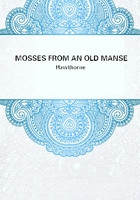
第41章 THE PROCESSION OF LIFE(4)
Feeling within their breasts a shuddering sympathy, which at least gives token of the sin that might have been, they will thank God for any place in the grand procession of human existence, save among those most wretched ones. Many, however, will be astonished at the fatal impulse that drags them thitherward. Nothing is more remarkable than the various deceptions by which guilt conceals itself from the perpetrator's conscience, and oftenest, perhaps, by the splendor of its garments. Statesmen, rulers, generals, and all men who act over an extensive sphere, are most liable to be deluded in this way;they commit wrong, devastation, and murder, on so grand a scale, that it impresses them as speculative rather than actual; but in our procession we find them linked in detestable conjunction with the meanest criminals whose deeds have the vulgarity of petty details. Here the effect of circumstance and accident is done away, and a man finds his rank according to the spirit of his crime, in whatever shape it may have been developed.
We have called the Evil; now let us call the Good. The trumpet's brazen throat should pour heavenly music over the earth, and the herald's voice go forth with the sweetness of an angel's accents, as if to summon each upright man to his reward. But how is this?
Does none answer to the call? Not one: for the just, the pure, the true, and an who might most worthily obey it, shrink sadly back, as most conscious of error and imperfection. Then let the summons be to those whose pervading principle is Love. This classification will embrace all the truly good, and none in whose souls there exists not something that may expand itself into a heaven, both of well-doing and felicity.
The first that presents himself is a man of wealth, who has bequeathed the bulk of his property to a hospital; his ghost, methinks, would have a better right here than his living body.
But here they come, the genuine benefactors of their race. Some have wandered about the earth with pictures of bliss in their imagination, and with hearts that shrank sensitively from the idea of pain and woe, yet have studied all varieties of misery that human nature can endure. The prison, the insane asylum, the squalid chamber of the almshouse, the manufactory where the demon of machinery annihilates the human soul, and the cotton field where God's image becomes a beast of burden; to these and every other scene where man wrongs or neglects his brother, the apostles of humanity have penetrated. This missionary, black with India's burning sunshine, shall give his arm to a pale-faced brother who has made himself familiar with the infected alleys and loathsome haunts of vice in one of our own cities. The generous founder of a college shall be the partner of a maiden lady of narrow substance, one of whose good deeds it has been to gather a little school of orphan children. If the mighty merchant whose benefactions are reckoned by thousands of dollars deem himself worthy, let him join the procession with her whose love has proved itself by watchings at the sick-bed, and all those lowly offices which bring her into actual contact with disease and wretchedness. And with those whose impulses have guided them to benevolent actions, we will rank others to whom Providence has assigned a different tendency and different powers. Men who have spent their lives in generous and holy contemplation for the human race; those who, by a certain heavenliness of spirit, have purified the atmosphere around them, and thus supplied a medium in which good and high things may be projected and performed--give to these a lofty place among the benefactors of mankind, although no deed, such as the world calls deeds, may be recorded of them. There are some individuals of whom we cannot conceive it proper that they should apply their hands to any earthly instrument, or work out any definite act; and others, perhaps not less high, to whom it is an essential attribute to labor in body as well as spirit for the welfare of their brethren. Thus, if we find a spiritual sage whose unseen, inestimable influence has exalted the moral standard of mankind, we will choose for his companion some poor laborer who has wrought for love in the potato field of a neighbor poorer than himself.
We have summoned this various multitude--and, to the credit of our nature, it is a large one--on the principle of Love. It is singular, nevertheless, to remark the shyness that exists among many members of the present class, all of whom we might expect to recognize one another by the freemasonry of mutual goodness, and to embrace like brethren, giving God thanks for such various specimens of human excellence. But it is far otherwise. Each sect surrounds its own righteousness with a hedge of thorns. It is difficult for the good Christian to acknowledge the good Pagan;almost impossible for the good Orthodox to grasp the hand of the good Unitarian, leaving to their Creator to settle the matters in dispute, and giving their mutual efforts strongly and trustingly to whatever right thing is too evident to be mistaken. Then again, though the heart be large, yet the mind is often of such moderate dimensions as to be exclusively filled up with one idea.